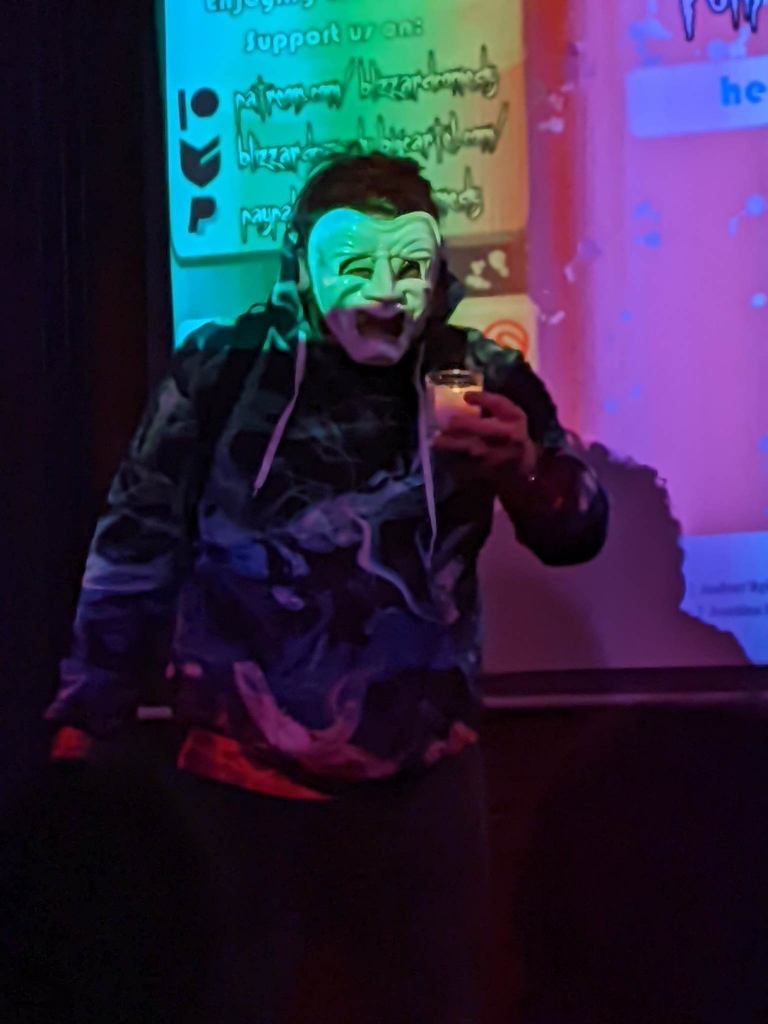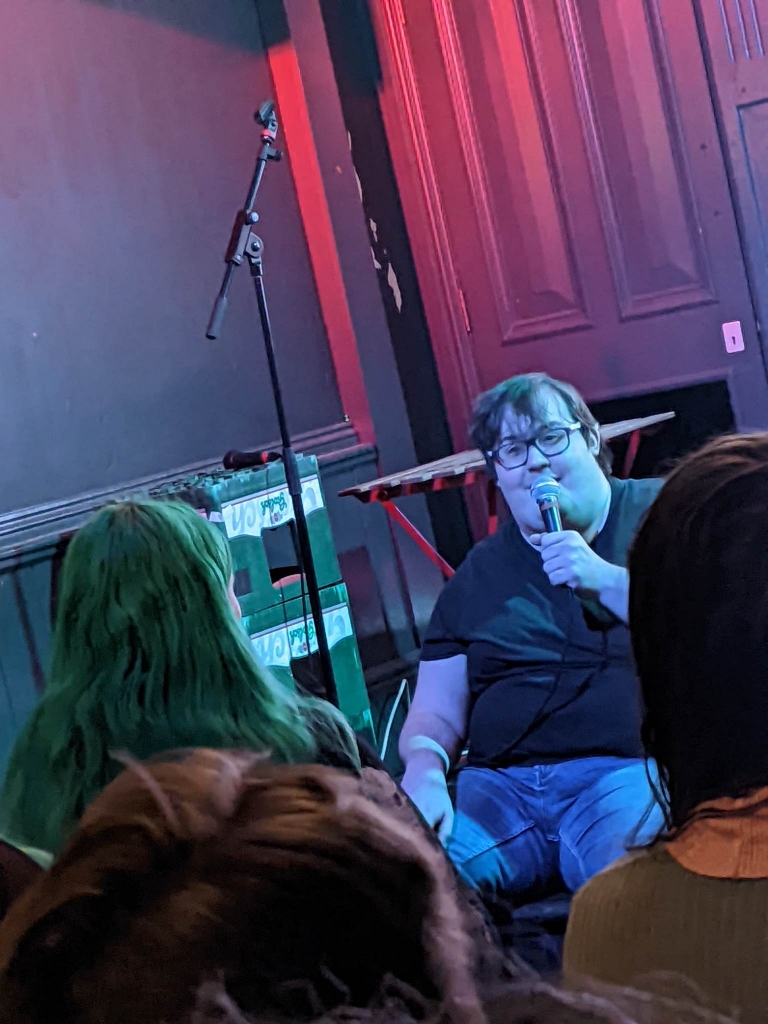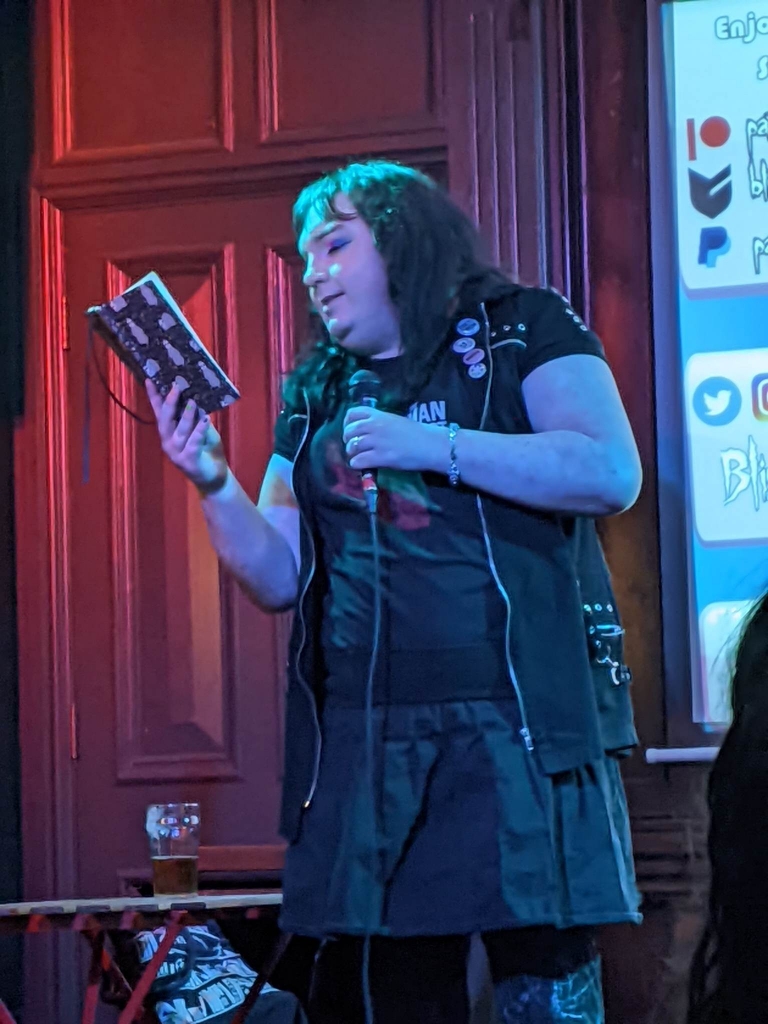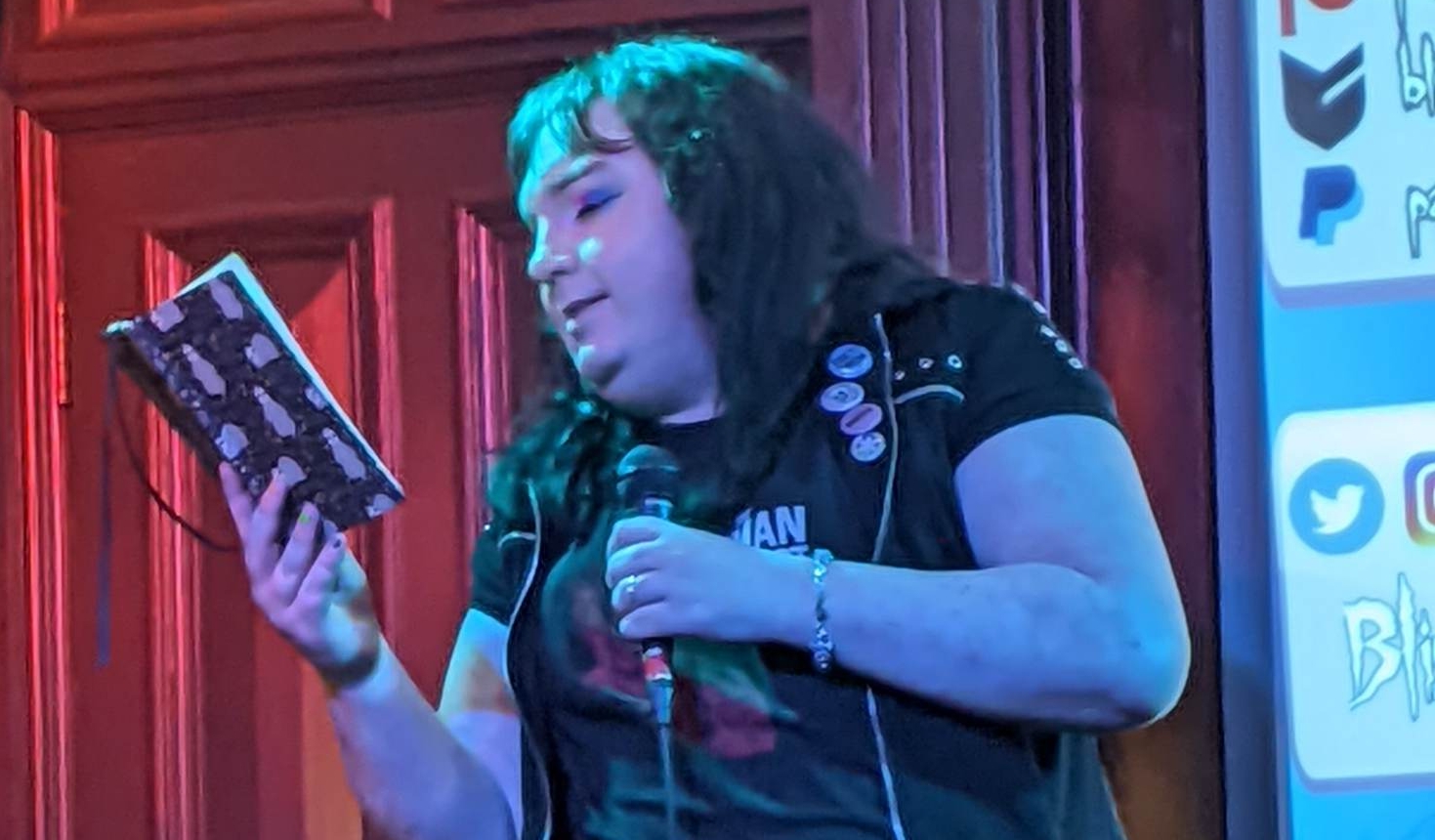Blizzard run inclusive comedy evenings to make sure that everyone can access comedy in a safe space. They were founded by Jonny Collins, who studied comedy writing and performance at Salford between 2013 and 2016. They graduated with a first-class degree and now, alongside the day job, play a very active role in the Mancunian comedy scene.
What made you decide to start the comedy nights?
The short answer is I’ve always enjoyed the behind-the-scenes aspects of running live shows just as much if not more so than actively being on stage. Blizzard wasn’t my first attempt at this; I had a go at running a few shows both in my old London home and while I was a student, where it became abundantly clear that whilst I had a knack for the booking and hosting the show, what left a lot to be desired were my marketing skills.

I have always loved the atmosphere of comedy clubs ever since I first started going to them. Once I got to the point of understanding my gender identity better, and especially when I was becoming more politically aware, I was noticing more and more that comedy clubs are often lawless places that tend to be very male-dominated and rowdy both on and off stage.
Some people absolutely thrive in that environment but there were often times on mixed bills where I would have to endure comedians performing routines that relied on transphobic tropes, mean spirited targeted attacks punching down on demographics already marginalised by society, and frankly also just very hack and unimaginative.
I felt a lot more exposed and at risk the more open I was about who I was in these environments. I was feeling unsafe and isolated in your average comedy club. There are plenty of lovely, funny and talented people for whom most live comedy is inaccessible and unwelcoming both on and off stage.
This observation is what gave me the drive to create a comedy club setting where LGBTQIA+ people, women, neurodivergent, and any marginalized demographic could both enjoy live comedy, safe in the knowledge that they won’t be the target of any mean-spirited jokes, and have a platform where they could hone their craft and perform, getting to explore topics and ideas that are more difficult to sell at the larger clubs.

We describe Blizzard as a comedy safe space and some things we implement to try and achieve that are making all of our shows donation based, so this allows audience members to pay in proportion to their means, and means no one will be excluded due to financial/class status – which is ever more important in the cost of living crisis. We allow audience members to “opt-in” to audience interaction, signified by a sticker so that anyone anxious about the comedians talking to them and asking them questions from the stage our at ease knowing that no one will talk to them unless they have indicated that they are happy to be spoken to. We provide a list of content/trigger warnings ahead of each act, and we do our best to ensure the venue’s accessibility accommodations are as good as possible to ensure no one is turned away at the door due to their access needs.
Do you think that Salford helped you develop ideas for a more inclusive performing environment
This is hard to answer as during my time at university, this idea wasn’t really in my head at all, so I wasn’t consciously thinking about inclusivity in the same way that I do now.
What I will say though is being at Salford and specifically being around academics and fellow students with expertise and interest in comedy, is I did learn that the art form is a lot broader than is often represented on TV and in the big clubs. This I think planted seeds of motivation for me to stand out and create something new, whatever form that would take.

Getting to practice disciplines from stand-up to radio production to improvisation to clowning, to sketch to narrative driven comedy, and getting to do this in a class full of creatives from a range of backgrounds, styles and interests was hugely beneficial to my early development as a performer, and instilled in me values of creative exploration, a desire to hear a diverse pool of voices, and a motivation to expand a typical comedy club audience beyond to what it has historically been.
What is a lesson you learnt at Salford that you carry to this day?
I remember one bit of advice I have kept with me to this day came from a masterclass from Salford delivered by a practitioner called Christopher Molineux. One of the brilliant things of studying comedy writing and performance at Salford is all the industry connections it has, meaning that not only were we trained by terrific academics in the theory and practical sides of comedy, but frequently had opportunities for lessons from practicing comedians, including Jason Manford, Louisa Omielan and Kiri Pritchard McLean (all Salford alumni themselves, I’m in terrific company).
Christopher’s masterclass stuck out to me in particular, however. The one line that inspired me more than any other was “Every rule of comedy has an asterisk next to it.” There are plenty of people who’ve said to me before during and after my studies that comedy cannot be taught, you’re either funny or you’re not. That is fundamentally untrue, what is more accurate is that you can be taught the tools of comedy, but what makes a good comedian is the way they work with those tools to create something new. This is true of any creative art form, but I think comedy in particular thrives in the unexpected, and what is more unexpected than learning all the rules of comedy and deliberately breaking five of them just to see what will happen.
What would you say to someone who may be anxious about studying or performing because of their identity?
This is another complicated one, as I can only really speak for my own identity and background. Plenty of performers will face unique challenges in the industry and community that I couldn’t dream of. What I would say is that comedy, historically, has been often very one note and monolithic in terms of demographics. It is only really in the last decade or so that we’ve been getting decent levels of opportunities and platforms for women in comedy, and this had to be fought for. So, it is of the utmost importance for anyone with an identity or characteristics not typically seen in mainstream comedy to not be discouraged, as their presence in the industry is better for everyone. You will face more unique challenges in your career journey, but you also have a voice that is more crucial than most that we hear.

I would urge anyone who isn’t sure whether they can do any job, comedy or otherwise because they don’t look, sound or act like the most notable people in those jobs at the moment, to think about how much your presence in an industry like comedy can do for future generations of performers like you. Everyone benefits from a more diverse comedy circuit, so if it’s something you want to do, don’t let the attitudes of others put you off.
What does inclusion mean to you?
This may be my most contentious answer – and I’m going to say off the bat that Blizzard Comedy is by no means politically neutral, and by definition that does mean we inevitably exclude people based on values, views and opinions. Truthfully “true” inclusivity is hard to envision. If we take a definition of inclusivity that welcomes everyone equally, then that will naturally attract a certain crowd of people who will make the space unsafe for others. To use an extreme example, if you are welcoming of both homophobic and LGBTQIA+ people, then you will end up with a space with a disproportionate number of homophobic people. Confusingly, you must have reasonably strict boundaries in place if you want a safe, inclusive environment for those who need it most.
So to me inclusivity isn’t the same as a blanket “anyone is welcome” but instead recognition of the kinds of people who have been unfairly and even unconsciously excluded from the community for generations through no fault of their own, taking their needs into account, and building an environment where they’re not just allowed to be there, but will be safe when they are here.
Have you got a story you want to tell? Email alumni@salford.ac.uk!

 GRADUATE VOICE
GRADUATE VOICE 
 Twitter
Twitter Facebook
Facebook Google+
Google+ LinkedIn
LinkedIn